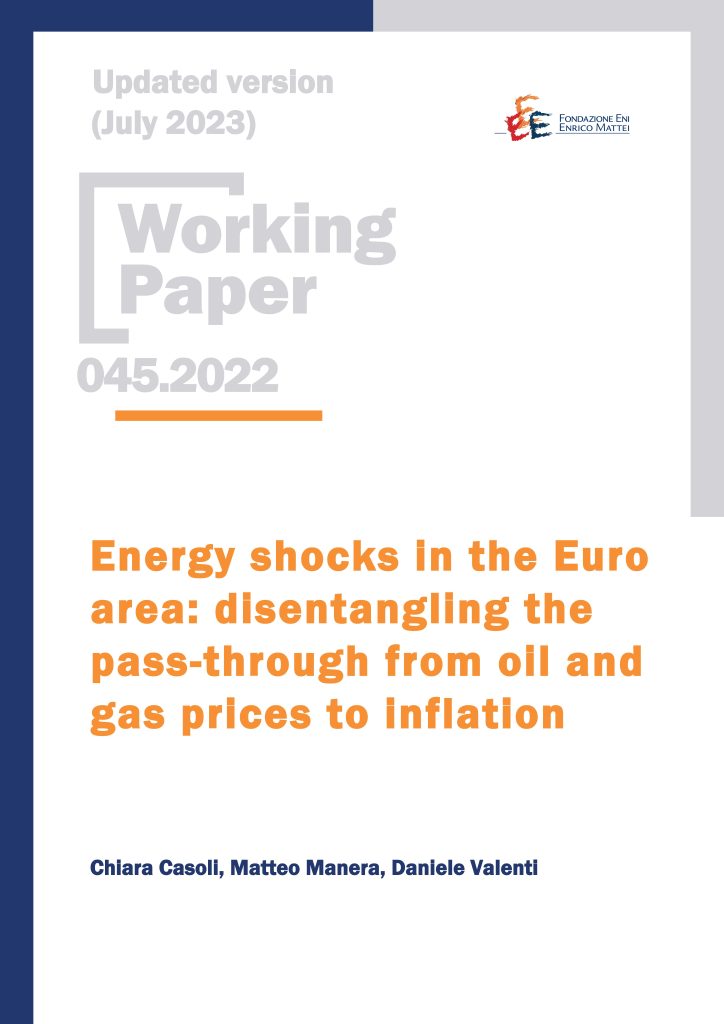Energy shocks in the Euro area: disentangling the pass-through from oil and gas prices to inflation

19.12.2022
Chiara Casoli (Fondazione Eni Enrico Mattei); Matteo Manera (Fondazione Eni Enrico Mattei and Department of Economics, Management and Statistics – DEMS, University of Milano-Bicocca); Daniele Valenti (Fondazione Eni Enrico Mattei and Department of Management, Economics and Industrial Engineering, Politecnico di Milano – School of Management)
C11, E31, Q41, Q43
Bayesian Structural VARs, Inflation, New Keynesian Phillips Curve, Energy shocks, Oil and gas markets
We develop a Bayesian Structural VAR model to study the relationship between different energy shocks and inflation dynamics in Europe. Specifically, we model the endogenous transmission from shocks identified by the global market of crude oil and the European natural gas market to two target macroeconomic variables, i.e. inflation expectations and realized headline inflation rate. Our results demonstrate that, since the post-pandemic recovery, inflation in the Euro area is mostly driven by energy price shocks and aggregate supply factors. In particular, the high peaks of the Eurozone inflation are mostly associated with natural gas supply shocks.
UPDATE: July 5, 2023
***
Suggested citation: C. Casoli, M. Manera, D. Valenti, ‘Energy shocks in the Euro area: disentangling the pass-through from oil and gas prices to inflation’, Nota di Lavoro 045.2022, Milano, Italy: Fondazione Eni Enrico Mattei
